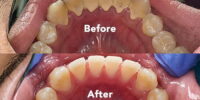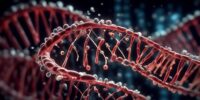To Alleviate PMS Symptoms Through Nutrition

In the quest to alleviate PMS symptoms, many women have turned to nutrition as a natural and holistic approach. By harnessing the power of food, it is possible to find relief from the physical and emotional challenges that accompany this monthly cycle.
This article delves into the intricate connection between nutrition and PMS, providing valuable insights on essential nutrients and foods to avoid.
With a carefully crafted meal plan, women can navigate their way towards a more harmonious and balanced well-being.
Key Takeaways
- PMS is a condition characterized by physical and emotional symptoms during the menstrual cycle.
- Proper nutrition, including a well-balanced diet rich in vitamins, minerals, and antioxidants, can help reduce PMS symptoms.
- Omega-3 fatty acids found in fatty fish, flaxseeds, and walnuts can alleviate mood swings and bloating associated with PMS.
- Avoiding foods high in sodium and caffeine during PMS can help alleviate symptoms such as water retention, bloating, breast tenderness, and mood swings.
Understanding PMS and Its Effects on the Body
The comprehensive understanding of the physiological and psychological effects of PMS on the female body is crucial for developing effective treatment strategies.
PMS, or premenstrual syndrome, is a condition that affects women during the menstrual cycle and is characterized by a range of physical and emotional symptoms.
Hormonal changes play a significant role in the development of PMS, causing disruptions in the body's natural balance. These hormonal fluctuations can lead to mood swings, irritability, and increased sensitivity.
Additionally, certain triggers, such as stress, lack of exercise, and poor nutrition, can exacerbate the symptoms of PMS.
The Role of Nutrition in Managing PMS Symptoms
A well-balanced diet rich in vitamins, minerals, and antioxidants has been shown to significantly reduce the severity of PMS symptoms. Proper nutrition plays a crucial role in balancing hormones and supporting overall well-being during the menstrual cycle.
When it comes to managing PMS symptoms, here are a few dietary tips to consider:
- Increase intake of fruits and vegetables: These are packed with essential vitamins and minerals that can help regulate hormones and reduce inflammation.
- Incorporate omega-3 fatty acids: Found in fatty fish, flaxseeds, and walnuts, omega-3s have anti-inflammatory properties and may alleviate mood swings and bloating.
- Consider herbal supplements: Certain herbal supplements like chasteberry and evening primrose oil have been found to relieve PMS symptoms.
By focusing on nutrition and incorporating these dietary strategies, individuals can support hormone balance and alleviate PMS symptoms.
Now, let's explore the essential nutrients for PMS relief.
Essential Nutrients for PMS Relief
Our examination of essential nutrients for PMS relief reveals that omega-3 fatty acids, in particular, have shown promising effects in reducing bloating and mood swings during the menstrual cycle. Nutrient deficiencies can contribute to the severity of PMS symptoms, making it crucial to ensure a well-balanced diet.
Omega-3 fatty acids are known for their anti-inflammatory properties and can help alleviate menstrual pain and discomfort. Incorporating foods rich in omega-3 fatty acids, such as fatty fish, flaxseeds, and chia seeds, can be a natural remedy for PMS symptoms.
Additionally, other essential nutrients like vitamin D, calcium, magnesium, and vitamin B6 have also been shown to have positive effects on PMS symptoms. By addressing nutrient deficiencies and incorporating these natural remedies into their diet, individuals can potentially experience relief from PMS symptoms.
Now, let's explore the foods to avoid during PMS to further enhance symptom relief.
Foods to Avoid During PMS
To minimize PMS symptoms, it is important to be aware of and avoid consuming foods high in sodium and caffeine during this time. PMS-induced cravings can often lead to unhealthy food choices, which can exacerbate symptoms such as bloating, irritability, and fatigue. Consumption of foods high in sodium can contribute to water retention and bloating, while caffeine can worsen symptoms such as breast tenderness and mood swings.
It is recommended to opt for a balanced diet that includes nutrient-rich foods, such as fruits, vegetables, whole grains, and lean proteins, to help alleviate PMS symptoms. Additionally, incorporating relaxation techniques, regular exercise, and staying hydrated can also contribute to managing PMS symptoms effectively.
Creating a PMS-Friendly Meal Plan
In order to create a PMS-friendly meal plan, it is important to incorporate nutrient-dense foods and avoid triggers such as processed sugars and inflammatory fats.
By focusing on nourishing your body with wholesome ingredients, you can help alleviate PMS symptoms and support overall well-being.
When planning your meals, consider including foods rich in vitamins and minerals that are known to reduce PMS symptoms, such as leafy greens, whole grains, and lean proteins.
Additionally, incorporating meal prep tips into your routine can save time and make healthy eating more accessible.
Prepare PMS-friendly recipes in advance, such as vegetable stir-fries or quinoa salads, so that you have nutritious options readily available throughout the week.
Frequently Asked Questions
Can Exercise Help Alleviate PMS Symptoms?
Exercise has been shown to have a positive impact on PMS symptoms. It helps reduce stress, which can alleviate symptoms. Additionally, exercise promotes hormonal balance, which is crucial for relieving PMS symptoms.
Are There Any Specific Vitamins or Minerals That Can Help With PMS Symptoms?
Certain vitamins and minerals have been shown to help alleviate PMS symptoms. These include vitamin B6, calcium, magnesium, and vitamin E. Incorporating these nutrients into a balanced diet may offer relief for individuals experiencing PMS.
What Are Some Lifestyle Changes That Can Help Reduce PMS Symptoms?
Incorporating dietary changes and stress management techniques can help reduce PMS symptoms. Adopting a balanced diet rich in fruits, vegetables, whole grains, and lean proteins, along with practicing stress reduction techniques such as exercise and mindfulness, can contribute to alleviating PMS symptoms.
Is It Possible to Completely Eliminate PMS Symptoms Through Nutrition Alone?
While nutrition can play a significant role in alleviating PMS symptoms, it is unlikely to completely eliminate them on its own. However, incorporating natural remedies and a balanced diet can effectively manage and reduce the severity of symptoms.
Can Certain Foods Worsen PMS Symptoms?
Certain foods, such as those high in sodium and sugar, can worsen PMS symptoms. Additionally, caffeine has been shown to increase irritability and breast tenderness. It is important to be mindful of these foods during PMS.








